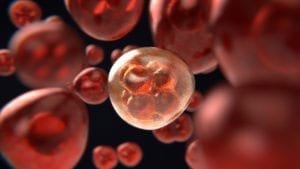Acute Lymphoblastic Leukemia (ALL)
What is acute lymphoblastic leukemia?
Acute lymphoblastic leukemia (ALL), also referred to as acute lymphocytic leukemia, is a cancer that affects the blood and bone marrow. Immature blood cells are made rather than mature ones, resulting in the characteristic symptoms.
ALL is the most common form of cancer in children. While it can occur in adults, it is often more severe and less likely to be cured.
What are the symptoms of acute lymphoblastic leukemia?
The various symptoms of ALL include pale skin, frequent nosebleeds, fever, bone pain, frequent infections, bleeding from the gums, swollen lymph nodes, shortness of breath, weakness, and fatigue.
What causes acute lymphoblastic leukemia?
An error in the DNA of the bone marrow causes ALL, resulting in the abnormal production of blood cells. Immature blood cells are produced, which develop into cancerous lymphoblasts. Medical professionals are unsure as to why this error in DNA occurs, but they have discovered that the majority of cases are not inherited.
While the exact cause is unknown, doctors have identified risk factors. Previous cancer treatment, having a sibling with ALL, genetic disorders, and exposure to radiation all raise one’s chance of developing this cancer.
How is acute lymphoblastic leukemia diagnosed?
Doctors will use various tests to diagnose ALL. This includes imaging tests, blood tests, bone marrow tests, and a lumbar puncture test.
What are the treatments for acute lymphoblastic leukemia?
There are different phases of treatment for this cancer, which typically take two to three years to complete. These phases are induction therapy, consolidation therapy, maintenance therapy, and preventive treatment to the spinal cord. Within these phases, doctors will use chemotherapy, radiation, targeted therapy, clinical trials, or a bone marrow transplant.
Where can I find out more about acute lymphoblastic leukemia?
Acute Lymphoblastic Leukemia Articles

Scientists May Have Found a Possible Cure for Acute Leukemia in Base Edited T-Cells

Study: High BMI Linked to Worse Acute Lymphoblastic Leukemia Outcomes

He Survived Acute Lymphoblastic Leukemia. Now He’s Pursuing Medicine to Help Kids Like Himself.

4th of July Parade Celebrated Boy Who Beat Acute Lymphoblastic Leukemia (ALL)

A Family is Raising Awareness After Their Son’s ALL Diagnosis

New Cell Therapy Approved by the FDA to Reduce Risk of Infection After Transplant

Advanced Leukemia: Test of Oral Revumenib Brought Impressive Results



